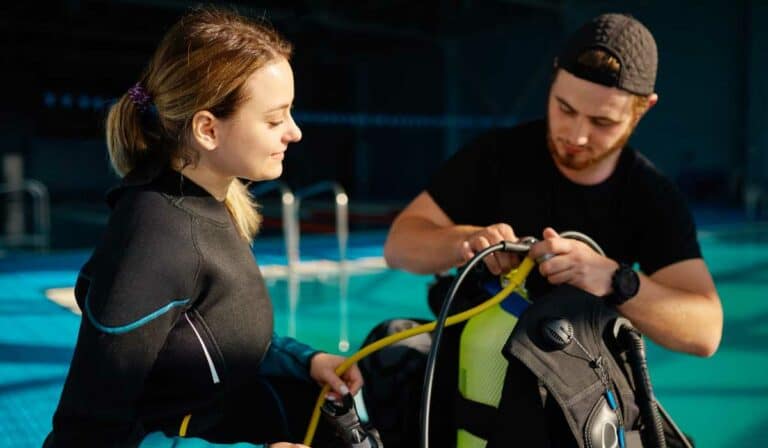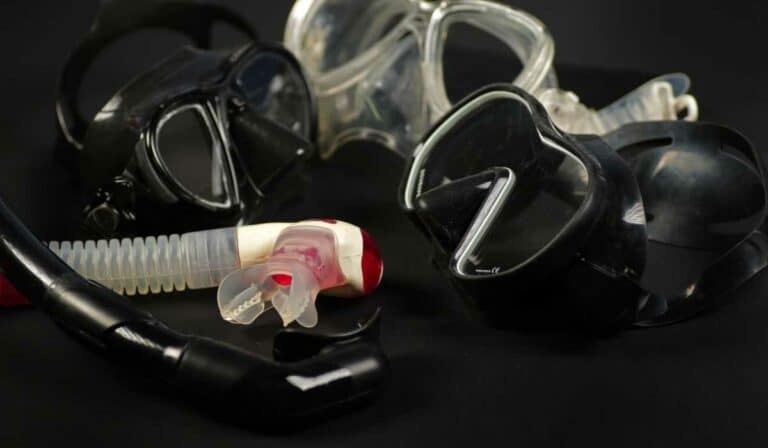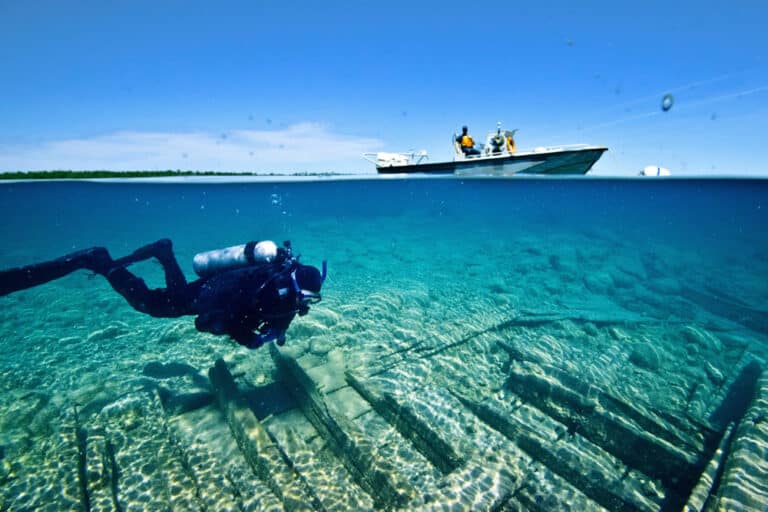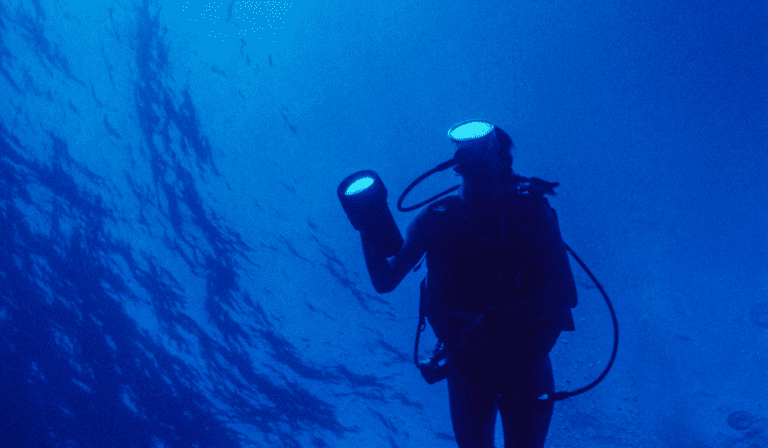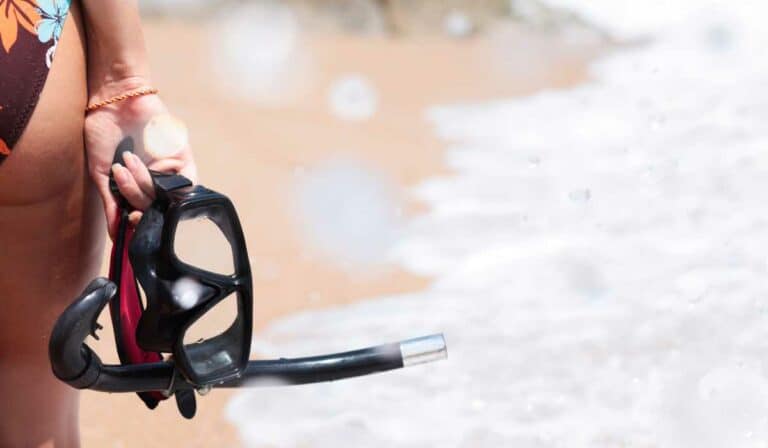Scuba Divers: 7 Essential Ways To Save The Oceans For the Future
Ways to save the oceans for future scuba divers are becoming increasingly important as our underwater world faces numerous threats. As lovers of the ocean, scuba divers have a unique opportunity to become some of its strongest advocates. In this blog post, we will explore various ways in which scuba divers can contribute to ocean conservation and ensure that future generations can continue enjoying the wonders of diving.
Exploring the role of marine protected areas in safeguarding biodiversity, as well as how to reduce contamination from land-sourced sources to secure aquatic life, will be discussed. Additionally, we’ll delve into coral reef restoration projects that aim to restore damaged reefs and promote healthy coral growth.
Furthermore, you’ll learn about participating in beach cleanups as an effective way to minimize pollution entering our oceans. Lastly, we will highlight several reputable ocean conservation organizations that deserve your support in their mission to maintain a healthy ocean planet for all.
Table of Contents
1. What Is Ocean Conservation?

Preserving our planet’s oceans, seas, and marine life from threats such as pollution, overfishing, habitat destruction, and climate change is essential to maintain the balance of Earth’s ecosystem. As a vital part of Earth’s ecosystem that covers more than 70% of its surface area, the ocean plays a crucial role in regulating global temperature and weather patterns while providing food sources for billions of people worldwide.
The significance of preserving our oceans is paramount when it comes to scuba diving. Healthy oceans are essential for maintaining diverse underwater ecosystems teeming with vibrant coral reefs and abundant marine life – all key attractions for scuba divers who seek to explore the wonders beneath the waves. By supporting ocean conservation efforts, we can help ensure that future generations have access to these awe-inspiring experiences.
A few alarming facts about our oceans:
- More than 80% of marine pollution originates from land-based activities like agricultural runoff or plastic waste disposal.
- Coral reefs, which provide habitats for approximately 25% of all known marine species despite occupying less than 0.1% of the world’s ocean floor area, are at risk due to factors such as bleaching events caused by rising sea temperatures.
- Overfishing has led to dwindling fish populations across many parts of the globe – some estimates suggest that nearly one-third of commercial fish stocks are being fished at unsustainable levels.
With these alarming facts in mind, it’s clear that ocean conservation is a pressing issue for scuba divers and anyone who cares about the health of our planet. In this article, we’ll examine how scuba divers can play a role in ocean conservation initiatives to safeguard the seas for future generations.
Ocean conservation is an important part of preserving our planet’s health and future generations. Scuba divers can do their part to safeguard the ocean by comprehending what must be done and carrying out actions that will have an impact.
2. How Can Scuba Divers Help?
Scuba divers have a unique opportunity to contribute to ocean conservation efforts due to their firsthand experience with the underwater world. By participating in various activities and programs, scuba divers can make a positive impact on preserving marine life for future generations of explorers.
Awareness and Education
The first step towards helping save our oceans is raising awareness about the issues they face. Scuba divers can share their experiences and knowledge with others, promoting the importance of protecting marine ecosystems. One way to do this is by becoming an ambassador for organizations like Project AWARE, which focuses on engaging scuba divers in environmental initiatives.
Citizen Science Programs
Participating in citizen science programs allows scuba divers to actively contribute valuable data that aids researchers in understanding and protecting marine environments. For example, REEF (Reef Environmental Education Foundation) encourages volunteer participation through its fish surveys program, where scuba divers record information about fish species observed during dives.
- Fish Surveys: Participate in REEF’s Volunteer Fish Survey Project by conducting surveys during your dives and submitting your findings online.
- Invasive Species Monitoring: Join efforts such as REEF’s Invasive Lionfish Program or local groups dedicated to controlling invasive species populations.
Dive Responsibly
Maintaining good diving practices not only ensures personal safety but also helps protect fragile coral reefs from damage caused by careless behavior. Follow these guidelines when diving:
- Maintain proper buoyancy control to avoid accidentally touching or breaking coral.
- Do not touch, chase, or harass marine life. Observe from a safe distance and respect their space.
- Avoid anchoring on reefs; use mooring buoys instead when available.
Eco-Friendly Dive Operators
Choose dive operators that prioritize environmental responsibility by following sustainable practices such as using eco-friendly cleaning products, reducing single-use plastics onboard, and participating in conservation initiatives. The Green Fins program provides guidelines for responsible diving operations and certifies those who meet their standards of sustainability.
Incorporating these actions into your scuba diving adventures will contribute to the preservation of our oceans while enhancing your overall experience underwater. By working together with fellow divers and organizations dedicated to ocean conservation, we can help ensure future generations have the opportunity to explore our planet’s incredible underwater world.
Scuba divers can help by making conscious decisions to reduce their impact on the ocean and its inhabitants. By making mindful choices, scuba divers are helping to safeguard the underwater environment for future explorers. Subsequently, we will look at Marine Protected Areas as a key element of safeguarding the seas for upcoming generations.
Click here to read about Discover the 5 Best Beach Cities for Scuba Diving
Key Takeaway:
Scuba divers can help save the oceans by raising awareness, participating in citizen science programs like REEF’s fish surveys and invasive species monitoring, diving responsibly by avoiding damaging coral reefs, and choosing eco-friendly dive operators. By working together with fellow divers and organizations dedicated to ocean conservation, we can ensure future generations have the opportunity to explore our planet’s incredible underwater world.
3. Marine Protected Areas

Marine protected areas (MPAs) play a crucial role in preserving the underwater world for future generations of scuba divers. These designated zones help protect marine life, maintain healthy ecosystems, and ensure that our oceans remain vibrant and full of life.
The Importance of MPAs
MPAs are essential for ocean conservation, as they provide a safe haven for various species to thrive without human interference. By limiting activities such as fishing, oil drilling, and construction within these areas, we can reduce the stress on marine ecosystems and promote biodiversity.
- Protecting Endangered Species: MPAs serve as sanctuaries for endangered species by providing them with an environment free from threats like overfishing or habitat destruction.
- Promoting Coral Growth: Healthy coral reefs are vital to maintaining diverse underwater habitats; MPAs allow corals to grow undisturbed by harmful human activities.
- Maintaining Ecosystem Balance: Preserving natural environments helps maintain the balance between different species in the ecosystem, ensuring its overall health and resilience against external factors such as climate change or pollution.
Dive Responsibly In Marine Protected Areas
To preserve these precious underwater havens while enjoying your diving experience, it’s important to practice responsible diving habits when exploring MPAs. Some ways you can do this include:
- Maintain proper buoyancy control: Good buoyancy control prevents accidental damage to fragile coral reefs or other sensitive marine habitats during dives.
- Avoid touching any living organisms: Even the slightest touch can cause harm to delicate marine life, so always maintain a safe distance and respect underwater life.
- Follow local guidelines and regulations: Each MPA may have specific rules in place to protect its unique ecosystem. Make sure you’re aware of these before diving and adhere to them at all times.
Supporting Marine Protected Areas
You can also contribute to the preservation of MPAs by supporting organizations that work towards their establishment and management. Some reputable groups include:
By exploring remote ocean areas responsibly, supporting conservation efforts, and spreading awareness about the importance of MPAs, scuba divers like yourself can play an essential role in ensuring our oceans remain healthy for future generations.
Marine Protected Areas are a crucial tool for preserving the ocean’s ecosystems and protecting marine life. To protect our seas and guarantee that scuba divers of the future can take pleasure in them, it is necessary to minimize contamination.
Key Takeaway:
MPAs are essential for sustaining the well-being and diversity of our seas, and safeguarding delicate habitats from overfishing contamination, and other human activities. As a scuba diver, visiting established MPAs during your next dive trip can contribute to their ongoing preservation while following responsible diving practices that minimize your impact on the environment.
4. Reducing Pollution
One of the most significant threats to our oceans and marine life is pollution, which not only affects the health of underwater ecosystems but also impacts the quality of scuba diving experiences. As scuba divers, we can take several steps to reduce pollution in our oceans and preserve them for future generations.
Avoiding Single-Use Plastics
Single-use plastics are a major contributor to ocean pollution, as they often end up in waterways and eventually make their way into the sea. By avoiding single-use plastic items such as bottles, bags, straws, and cutlery when possible, you can help minimize this harmful waste. Opt for reusable alternatives like stainless steel water bottles, cloth shopping bags, or biodegradable products instead.
Proper Trash Disposal
When exploring beaches or participating in watersports activities like scuba diving or snorkeling, always ensure that you dispose of your trash properly by using designated bins onshore or taking it with you until proper disposal options are available. This includes cigarette butts – one small item that has a big impact on marine life if discarded irresponsibly.
Eco-Friendly Dive Gear
- Biodegradable sunscreen: Traditional sunscreens contain chemicals that can harm coral reefs and other marine organisms when washed off during swimming or diving sessions. Instead, choose biodegradable sunscreens that do not contain oxybenzone and octinoxate – two common ingredients known to damage coral reefs.
- Eco-friendly wetsuits: Many wetsuits are made from neoprene, a petroleum-based material that is not environmentally friendly. Opt for eco-friendly alternatives like those made from natural rubber or recycled materials to reduce your environmental impact.
Click here to read about Diving in the Lone Star State: The Best Places to Scuba Dive in Texas
Responsible Diving Practices
As scuba divers, it is our responsibility to safeguard the underwater environment we cherish. This means being mindful of our actions while diving and following responsible practices such as maintaining proper buoyancy control to avoid damaging coral reefs and marine life, not touching or disturbing wildlife, and reporting any signs of pollution or damage you may encounter during your dives. By adhering to these principles outlined by organizations like Project AWARE, you can help ensure that future generations will also be able to enjoy the wonders of our oceans through scuba diving.
Reducing pollution is essential for protecting the ocean and its inhabitants. Rebuilding coral reefs and reviving marine life habitats that have been damaged by human activity is an excellent approach to take in order to restore the ocean’s ecosystem.
Key Takeaway:
Scuba divers can help save the oceans for future generations by reducing pollution, avoiding single-use plastics, properly disposing of trash, using eco-friendly dive gear like biodegradable sunscreen and eco-friendly wetsuits, and following responsible diving practices such as maintaining proper buoyancy control and not touching or disturbing wildlife. We can guarantee that future divers will be able to appreciate the beauty of our seas by safeguarding the health of underwater habitats through conscientious practices such as not touching or disturbing wildlife, using biodegradable sunscreen and eco-friendly wetsuits, properly disposing of trash, avoiding single-use plastics, and controlling buoyancy appropriately.
5. Coral Reef Restoration Projects

Scuba divers are drawn to the vibrant underwater world that coral reefs provide, yet these essential ecosystems have been gravely impacted by climate change, pollution, and overfishing. Unfortunately, factors such as climate change, pollution, and overfishing have led to significant damage to coral reef ecosystems worldwide. To combat this issue, numerous coral reef restoration projects have been established globally with the aim of preserving ocean life for future generations of scuba divers.
A. Getting Involved in Coral Restoration Programs
If you’re passionate about protecting our oceans’ coral reefs, consider participating in one of these programs that focus on restoring damaged corals:
- Coral Restoration Foundation (CRF): This non-profit organization is dedicated to creating offshore nurseries and transplanting healthy corals into their natural habitats.
- SECORE International: A global network of scientists and conservationists working together on research-based approaches to restore endangered coral species.
- Great Barrier Reef Foundation: An Australian organization focused on innovative solutions for conserving the Great Barrier Reef through science-backed initiatives like assisted gene flow and heat-tolerant algae symbiosis.
B. Adopting Sustainable Diving Practices
To minimize your impact while diving near delicate coral ecosystems, adopt sustainable diving practices such as:
- Maintaining proper buoyancy control: Avoid touching or bumping into corals by perfecting your buoyancy skills before diving in sensitive areas.
- Choosing eco-friendly dive operators: Support businesses that prioritize sustainable practices, such as using mooring buoys instead of anchors and offering reef-safe sunscreen to their clients.
- Participating in citizen science programs: Contribute valuable data by reporting coral health, marine life sightings, or invasive species through platforms like REEF or CoralWatch.
You can help protect these underwater gems for upcoming divers to experience by engaging in coral restoration initiatives and following sustainable diving habits.
Coral reef restoration projects are essential for protecting our oceans and preserving the underwater world for future generations of scuba divers. Joining in beach clean-ups is another great way of preserving the ocean’s delicate habitats.
Key Takeaway:
Scuba divers can help save coral reefs by participating in restoration programs like Coral Restoration Foundation, SECORE International, and Great Barrier Reef Foundation. They should also adopt sustainable diving practices such as maintaining proper buoyancy control, choosing eco-friendly dive operators, and participating in citizen science programs to protect these underwater gems for future generations of divers.
6. Participating in Beach Cleanups
One of the most effective ways to help preserve our oceans for future generations of scuba divers is by participating in beach cleanups. These events are organized by various groups and individuals, aiming to remove trash and debris from beaches and coastal areas. By taking part in these activities, you not only contribute to a cleaner environment but also raise awareness about the importance of keeping our oceans free from pollution.
International Coastal Cleanup, an initiative led by Ocean Conservancy, is one such event that takes place annually across several countries worldwide. Thousands of volunteers gather on this day to collect tons of trash from coastlines, making a significant impact on ocean health.
To participate in beach cleanups effectively, follow these steps:
- Find local cleanup events: Look for beach cleanup initiatives happening near your location through social media or websites dedicated to environmental conservation.
- Gather necessary supplies: Bring reusable gloves, sturdy bags or buckets for collecting trash, sunscreen, hats, and comfortable shoes suitable for walking on sand or rocky shores.
- Familiarize yourself with safety guidelines: Be aware of potential hazards like sharp objects or slippery surfaces while cleaning up the beach area. It’s essential always to prioritize personal safety during these events.
- Promote responsible behavior among fellow participants: Encourage others around you not just to pick up litter but also to reduce their waste footprint going forward – avoiding single-use plastics whenever possible.
- Spread the word: Share your experience and photos from beach cleanups on social media to inspire others to join in future events.
Beyond participating in organized events, you can also make a difference by picking up trash whenever you visit the beach or go scuba diving. Small actions like these contribute significantly to preserving our oceans for future generations of divers.
In addition to beach cleanups, consider joining or supporting organizations such as Project AWARE, which focuses on marine debris removal through its Dive Against Debris program. Combining your love of scuba with ocean preservation endeavors is an essential step to guaranteeing that the beauty beneath the waves stays open and enjoyable for many years.
By participating in beach cleanups, we can help reduce the amount of plastic and other debris that end up polluting our oceans. Supporting ocean conservation organizations is another great way to ensure future generations have access to healthy marine ecosystems for scuba diving.
Key Takeaway:
One effective way to preserve the oceans for future scuba divers is by participating in beach cleanups. Removing trash and debris from beaches and coastal areas while raising awareness of ocean pollution is an important way to preserve the oceans for future scuba divers. By joining or supporting organizations such as Project AWARE, we can combine our love of scuba with ocean preservation endeavors.
7. Supporting Ocean Conservation Organizations

Donating to or volunteering for associations devoted to preserving our oceans is a powerful way of guaranteeing a thriving aquatic environment for upcoming scuba divers. These groups work tirelessly on various projects, from research and education to policy advocacy and direct action. By giving or volunteering, you can have a major effect on safeguarding ocean life for the future.
Here are some reputable ocean conservation organizations that you can support:
- Ocean Conservancy: Focused on creating science-based solutions for a healthy ocean, this organization tackles issues such as overfishing, habitat destruction, and pollution.
- Project AWARE: This global movement of scuba divers works together with local communities to protect underwater environments through cleanups, citizen science initiatives, and advocating for more robust policies.
- Coral Reef Alliance (CORAL): Dedicated specifically to saving coral reefs worldwide, CORAL partners with local communities in reef regions to implement effective conservation strategies.
- Sea Shepherd Global: Known for its direct-action approach against illegal fishing activities around the world, Sea Shepherd also participates in marine debris removal campaigns alongside its efforts against poaching operations.
In addition to providing financial support or volunteering your time directly with these organizations’ programs or events, spreading awareness about their missions is equally important. Share information about ocean conservation initiatives with your friends, family, and social media followers. The more people are aware of the issues facing our oceans and marine life, the greater impact we can collectively make.
As a scuba diver, you have a unique opportunity to witness firsthand the beauty and fragility of underwater ecosystems. By aiding organizations that are devoted to safeguarding the oceans and their inhabitants, you’re not only doing your part for preserving our planet’s invaluable assets but also making sure that others can have the same opportunity to marvel at what lies beneath.
Key Takeaway:
Supporting ocean conservation organizations is a powerful way to ensure a thriving aquatic environment for future scuba divers. By donating or volunteering with reputable groups like Ocean Conservancy, Project AWARE, Coral Reef Alliance (CORAL), and Sea Shepherd Global, you can have a major impact on preserving our planet’s invaluable assets. Additionally, spreading awareness about their missions is equally important in making sure that others can have the same opportunity to marvel at what lies beneath.
FAQs about 7 Essential Ways To Save The Oceans For Future Safety forScuba Divers
How Can We Save the Ocean?
To save the oceans, we must focus on reducing pollution, supporting marine protected areas, participating in beach cleanups, and promoting coral reef restoration projects. Educating others about ocean conservation and supporting organizations dedicated to protecting our oceans is also crucial. Learn more about these efforts at Ocean Conservancy.
How Can I Make Scuba Diving Eco-Friendly?
Making scuba diving eco-friendly involves practicing good buoyancy control to avoid damaging aquatic life, not touching or disturbing marine organisms, using reef-safe sunscreen products, and disposing of waste properly. Additionally, support dive operators who prioritize sustainable practices and participate in citizen science programs like Project AWARE.
Is Scuba Diving Good for the Ocean?
Scuba diving can be beneficial for the ocean when divers follow responsible practices that minimize their impact on marine ecosystems. Divers often become advocates for ocean conservation due to their firsthand experiences with underwater environments. By raising awareness and supporting conservation initiatives such as Reef Check, divers contribute positively to preserving our oceans.
How Can I Avoid Damaging the Aquatic Environment While Diving?
Avoid damaging aquatic environments by maintaining proper buoyancy control to prevent contact with delicate corals or other habitats; avoiding touching or harassing marine life; using environmentally friendly gear such as reef-safe sunscreens; collecting trash during dives if safe to do so; adhering strictly to the PADI AWARE 10 Tips for Divers; and supporting eco-conscious dive operators.
Conclusion
By exploring the ocean, scuba divers have a unique perspective on its beauty and importance. However, with that comes a responsibility to protect it for future generations of divers. In this post, we’ve outlined some ways to save the oceans for future scuba divers including marine protected areas, reducing pollution, coral reef restoration projects, participating in beach cleanups, and supporting ocean conservation organizations.
To make a lasting impact, it is essential that we all take action to preserve the health of our oceans. By taking steps now, we can guarantee that scuba divers of the future will be able to appreciate the same splendors as us.



